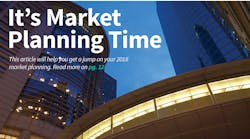Arecent segment on CBS's 60 Minutes entitled “The Millennials Are Coming,” captured a concern that every company will face and that many already struggle with — the arrival into the workforce of the next generation. Who are these young workers and why are they so different?
They are members of the new generation of the workforce sometimes called “Generation Y” or “the Digital Generation,” and are approximately 18 to 30 years old. You have probably heard about some of their defining characteristics: that 50 percent of them reportedly still live in their parents' homes and plan to stay there until their careers have a solid foundation; that they've grown-up believing they are “special;” and that they place at least as much emphasis on their friendships and leisure time as they do on their careers.
Are they better, worse, or just different? Opinions vary. Whatever you think, they are entering the workforce, quickly replacing the Baby Boomers; and are therefore the future of your company. Suggestions for hiring and managing “Generation Y” workers run the gamut. Many simply underscore what you may already know about good recruitment, management and the motivation of workers. Sure, newly minted college graduates and others in the Generation Y say they want certain things from their employer: structured and obvious career paths, relevant training, and flexible work hours. And yes, the super-confident/cocky attitudes that many of today's young job seekers seem to possess can be annoying. But it's possible that this attitude exuded by the stereotypical Gen-Yer is simply a reflection of the positive job market for young applicants. The void left by the Baby Boomers as they retire will be too large for the Millennials to fill, creating a talent shortage that leads to an open market for job seekers.
Despite these supposedly defining characteristics, be careful not to use media-driven stereotypes as a basis for employee development and hiring systems. How then can you make Millennials fit your company? The short answer is you can't, because in some ways you will have to adapt your management and training strategies to fit the Millennials. Once on board, this new generation will require a different kind of management strategy, one that is encouraging, motivating, gentle and personalized. The Millennials want coaches that not only guide their efforts, but act as role models as they reach for career goals. They are focused on their achievements and growth, and they won't settle for being under-appreciated, or tolerate stagnant positions. Members of this generation know they have options and are always searching for their “dream” jobs. They will change jobs many times, if need be, until they find that dream job.
Generation generalization: Don't attempt to understand a generation, understand the individual. Employers are asking themselves all types of questions: What do Generation Yers like and dislike? What are their goals? What motivates them? When you try to answer these questions, generalization isn't effective. True, each Generation Yer is unique, but isn't that true to a large extent of all of us — regardless of generation? It's the specific understanding of what makes them, as Millennials, individuals, that will make or break your talent management.
For many of us, this workforce may be hard to communicate with and understand. The differences between them, the Baby Boomers and everyone in between, can create struggles for many employers and co-workers. This situation solidifies the increasing need for effective communication in order to ensure positive relationships that will benefit the company. It often takes time to really get to know employees of any generation and discover their true character, yet because Millennials tend to be an impatient lot, you may not have as much time to get to know them before they leave your company for a new job.
With this new type of individual, it's necessary to uncover the behaviors and motivators that make them as individuals unique. It might be well also, as employers, to understand and appreciate how our own behaviors and motivators differ from Millennials as a way to increase effective communication with this “new breed.”
When hiring Millennials, consider some of the excellent pre-hire and post-hire performance development assessment tools that measure job suitability, attitudes and motivators — all of which are critical success factors in determining whether there is a fit in your corporate culture, what adjustments you as an employer need to make to attract the Millennials, and what training and guidance programs need to be put in place to retain the top performers. Those companies that make the transition in their hiring and talent retention programs will be making a significant investment in their long-term success.
Howard W. Coleman, principal of MCA Associates, Derby, Conn., has worked with more than 135 clients in distribution and manufacturing as a management consultant. Coleman has extensive hands-on experience in evaluating, streamlining and implementing value-added and continuous improvement solutions, and works extensively with clients in developing and implementing operational excellence practices, continuous improvement and root-cause corrective action programs.
With more than 35 years of business management experience and 19 years as a management consultant, Coleman has also held corporate management positions in distribution, corporate enterprise software implementation, materials and inventory management and customer service. He has written many articles on distribution and manufacturing topics in industry business publications. Contact information: (203) 732-0603; e-mail at [email protected]; Web site: www.mcaassociates.com.
Five Tips for Getting the Most out of Millennials
-
Don't try to manage by decree. Generation Yers will tune you right out. Instead, utilize a management style that's encouraging, motivating, gentle and personalized.
-
Utilize mentors. The Millennials want coaches that not only guide their efforts, but act as role models as they reach for career goals.
-
Challenge them. Millennials are focused on their achievements and growth, and they won't settle for being under-appreciated, or tolerate stagnant positions.
-
Treat them as individuals, not as a group. Don't buy into all of the stereotypes for the Millennials, Like any employee, they want to be treated and evaluated as individuals.
- Be flexible. Millennials like work environments with some flexibility in hours and location. Consider offering swing shifts and the option to work at home, because many Millennials seem to thrive in companies that don't live and die by the traditional 9-to-5 punch-a-clock mentality. A flex-time work environment doesn't work in all companies, but if a job's work load can be accomplished in off-hours outside the office, it may be a good fit for those Millennials who like working late into the night but aren't early risers.








